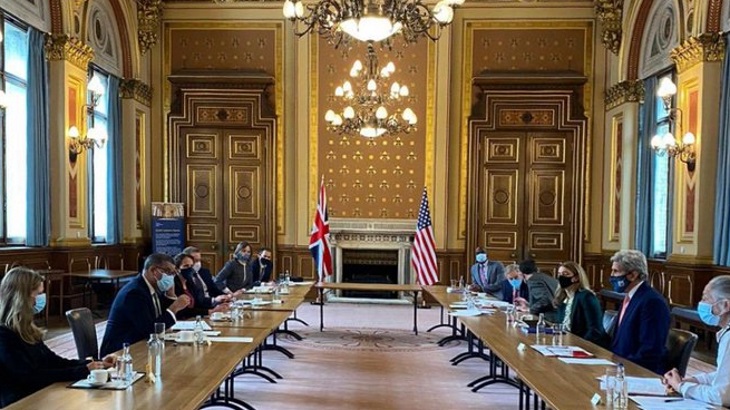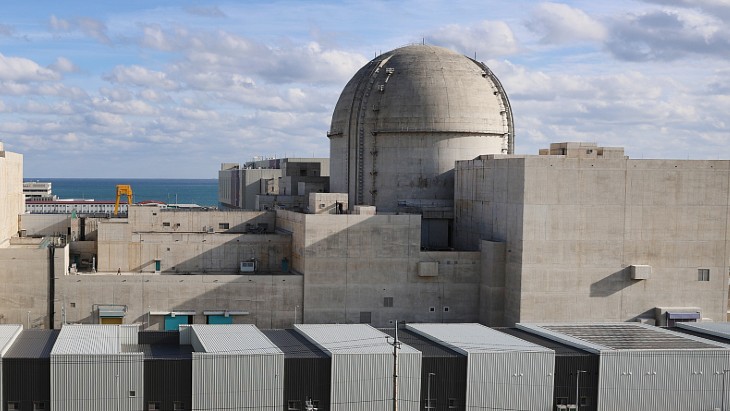Sharma made the announcement in a speech titled Pick the Planet that he delivered on 14 May at Whitelee Windfarm, near Glasgow - the host city for COP26. He noted that the UK has reduced its use of coal for electricity generation from 40% in 2012 to 2% currently, and plans to phase it out completely by 2024. It is also working directly with governments and through international organisations to end coal financing.
"The days of coal providing the cheapest form of power are in the past. And in the past they must remain. Because the science is clear that to keep 1.5 degrees alive, coal must go," he said. "So let’s make COP26 the moment we leave it in the past where it belongs, while supporting workers and communities to make the transition, by creating good green jobs to fill the gap."
In response, NIA Chief Executive Tom Greatrex said that, "as a reliable, always-on, emissions-free source of power", nuclear is a tried and tested way for countries, including those in the developing world, seeking to replace coal, or avoid it altogether. "If we are serious about reaching net zero, countries must invest in proven ways to cut heavy reliance on coal and other fossil fuels, at the same time meeting growing energy demands; nuclear can do that," he said.
Ahead of his meeting with Sharma yesterday, Kerry told the BBC that the phaseout of coal was "happening anyway in the marketplace".
In an interview on The Andrew Marr Show television programme, Kerry was asked whether the USA would be willing to sign up to a pledge to stop using coal for electricity. "You couldn't build a new coal-fired power plant in the United States because you can't finance it," he replied.
The USA has the second largest fleet of coal-fired power stations in the world, around 11% of the total. Kerry said 58 US coal plants are slated for phaseout, "with more to come". Pressed for a date on the USA's phaseout of coal, he said, "As soon as it's feasible."
"The USA is the second largest producer of greenhouse gas emissions in the world and we're determined to turn that around. Two years ago it was 15%. It's now 11%. If you look at the track we are on, we are going to be moving very rapidly to a new economy, building out the grid, moving towards alternative and renewable energy," he said. "And we're also pushing the curve on the discovery of new technologies, whether it's green hydrogen or others, there are a lot of possibilities out there. Bill Gates is pursuing a small modular next generation nuclear capacity."
The USA has pledged to cut its CO2 emissions by 50-52% below 2005 levels by the end of this decade, and achieve net zero by 2035. US President Joe Biden announced the target at the Leaders Summit on Climate he hosted last month.
Kerry said the climate crisis is "one of the top four issues" that Biden is focused on.
Asked whether a change to the American lifestyle, in order to reduce energy consumption, was a nonstarter, he said: "This is a false choice. You don't have to give up quality of life to achieve some of the things that we know we have to achieve."
He added: "Scientists say that 50% of the reduction in emissions needed to reach net zero by 2050 are going to come from technologies that we don’t yet have. That's part of the challenge."
Referring to the scientific achievements of COVID-19 vaccines, the Moon landings and the Internet, he said: "We know how to invent and innovate and we're going to put every effort we have into making that transformation happen as fast as possible."
US Energy Secretary Jennifer Granholm told the House Appropriations subcommittee on 6 May that she was open to the idea of subsidies for nuclear plants. The Department of Energy "has not historically subsidised plants", she said, "but I think this is a moment to consider and perhaps in the American Jobs Plan or somewhere to make sure that we keep the current fleet active." She added: "We are not going to achieve our climate goals if our nuclear power plants shut down. We have to find ways to keep them operating."
On 30 April, Entergy Corporation's Indian Point unit 3, in New York State, became the latest US nuclear reactor to be shut down prematurely owing in large part to sustained low current and projected wholesale energy prices.





_72306.jpg)


_49562.jpg)





